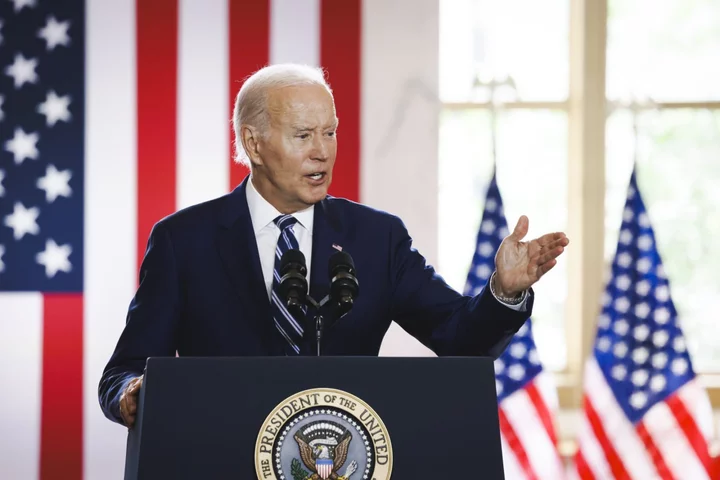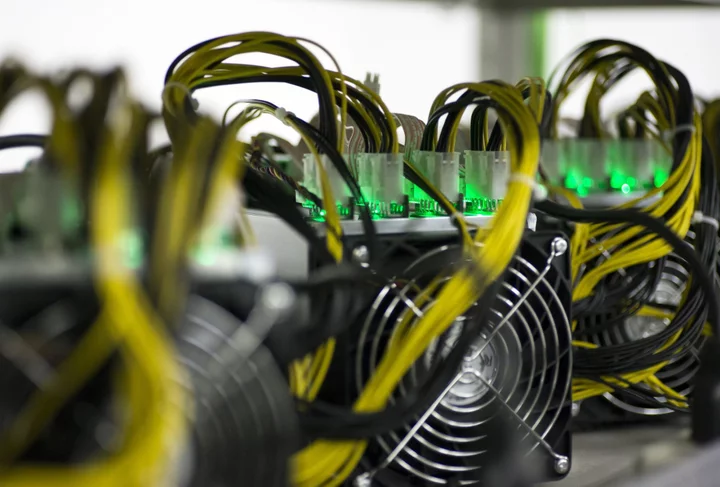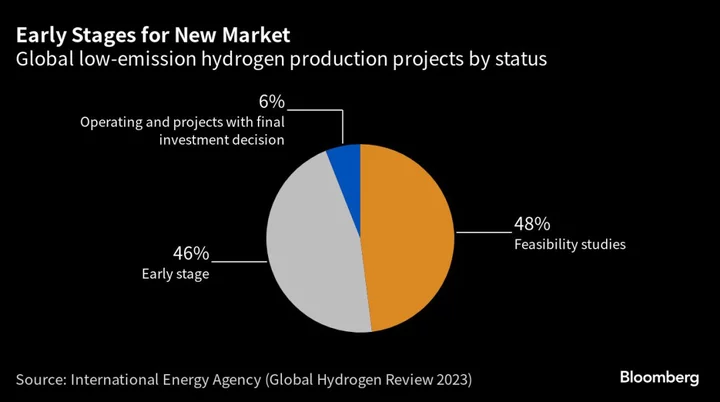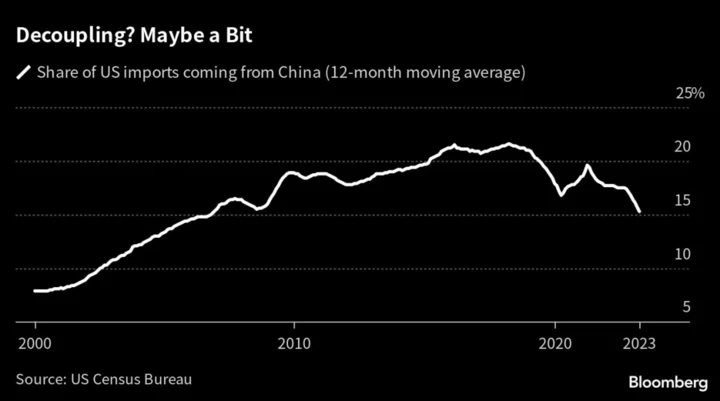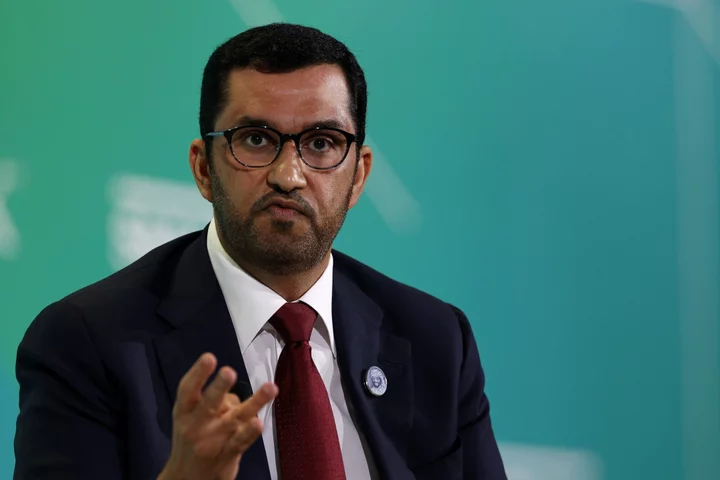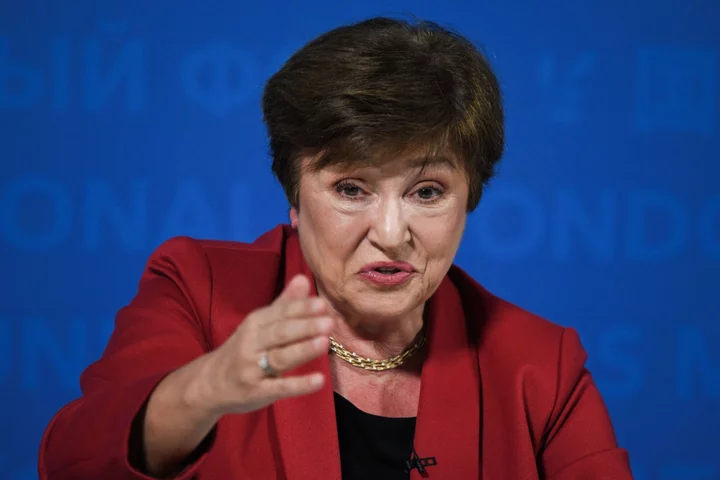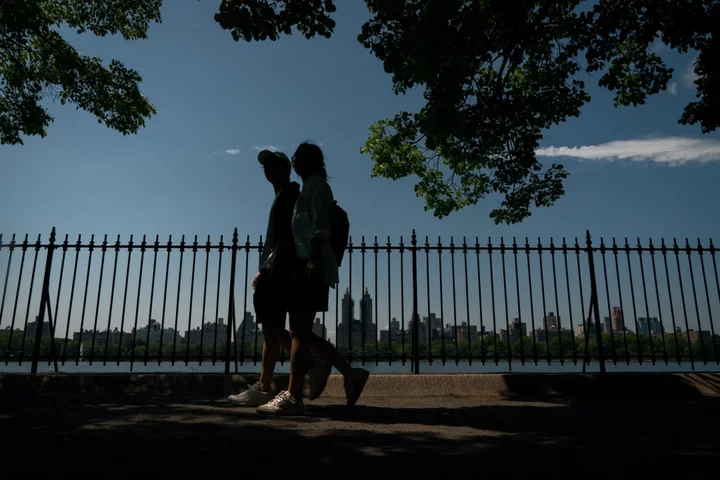President Joe Biden will announce new steps to protect student-loan borrowers, a White House official said, after the Supreme Court threw out his plan to forgive billions of dollars in debt, undoing one of his signature initiatives.
Biden will speak on the court’s ruling and detail the actions his administration is taking in remarks Friday, according to the official, who was familiar with the president’s plans.
The justices, in a 6-3 vote, sided with six Republican-led states that sued to challenge the program as exceeding the president’s authority. Chief Justice John Roberts, who wrote for the majority, said the administration was “seizing the power of the legislature.”
The decision nixes a centerpiece of Biden’s agenda — one he campaigned on in 2020.
Read more: Supreme Court Throws Out Biden’s Student-Loan Relief Plan
The debt-relief program is broadly popular with progressives, young people and Black voters, and was seen as an unabashed attempt to woo those key voting blocs. Those voters helped Biden win the White House and are crucial to securing a second term with polls showing their support for the president has waned.
Biden will say Republicans are responsible for denying student loan borrowers relief, the official said.
Republican National Committee Chairwoman Ronna McDaniel said in a statement that Biden’s plan “unfairly punished Americans who already paid off their loans, saved for college, or made a different career choice.”
“Americans saw right through this desperate vote grab, and we are thankful that the Supreme Court did as well,” McDaniel added.
Progressive Pressure
Legal watchers had expected the court to strike down the program after the conservative majority reacted skeptically during oral arguments in February to the administration’s use of a 2003 law known as the Heroes Act to enact the debt relief.
In recent days, in anticipation of the ruling, advocates protested outside the White House, urging the administration to find other ways to protect student borrowers.
Bloomberg News was first to report that officials were being asked to reintroduce the plan using a different legal rationale, using the Higher Education Act of 1965. That law gives the Education secretary broad authority to manage the federal student-loan portfolio.
Read more: White House Under Pressure to Develop a ‘Plan B’ on Student Debt
“President Biden, he has the power still to do that,” said Wisdom Cole, director of the NAACP’s youth and college division, in a recent interview, citing the Higher Education Act. “If we are able to see this debt-cancellation happen, this will be a big win for the president.”
The White House, though, has dismissed suggestions there will be a “plan B,” and it’s unclear if such an approach would stand up in courts.
Read the Supreme Court’s Opinion on Biden’s Student Debt Plan
Biden’s debt-relief plan had been eagerly anticipated by supporters. The president waited until 20 months into office to unveil the program.
The administration argued loan forgiveness was a response to the Covid-19 pandemic, pointing to a measure in the law which allows the Department of Education to waive or modify federal student loans to avoid financial harm to borrowers in a national emergency.
But despite citing the Covid-19 pandemic, by the time the program was announced in August 2022, most social distancing and masking requirements had been dropped in US cities. The administration argued Americans were still feeling financial stress that would hinder their ability to pay student loans.
Republicans blasted the size and scope of Biden’s plan, which would forgive as much as $20,000 in federal loans for borrowers making less than $125,000 per year and $250,000 for households. The Congressional Budget Office estimated the cancellation would cost about $400 billion over 30 years.
There have been efforts to repeal the program in Congress, including a bill Biden vetoed. House Republicans also targeted the program in talks over raising the debt-ceiling.
Under the debt-limit deal ultimately agreed to by Biden and House Speaker Kevin McCarthy, Americans will have to start making payments on their federal student loans which were frozen under the Trump administration because of the pandemic.
According to a notice from the Office of Federal Student Aid, student loan interest will resume on Sept. 1, and payments will be due starting in October.
(Updates with additional details, background from third paragraph)

